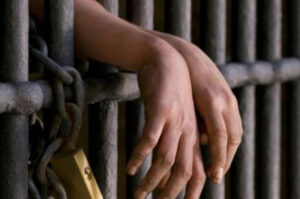Exit polls had begun to roll in at the end of European elections across the EU’s 27 countries, when President Emmanuel Macron delivered his bombshell moment in a televised address to a stunned French population.
“I’ve decided to hand you back the choice of our parliamentary future with a vote. I am therefore dissolving the National Assembly,” he declared.
The National Rally party – led by Mr Macron’s rivals Marine Le Pen and Jordan Bardella – was one of the big gains that Europe’s far-right parties had expected, and confirmation came with all the exit polls giving the party more than 30%, double that of Mr Macron’s centrist Renaissance.
But beyond France, the broader story of Europe’s four-day vote marathon really belonged to the parties of the centre right.
They tightened their grip on the European Parliament, with victories in Germany and Spain, and significant advances in Hungary, against long-dominant Prime Minister Viktor Orban.
The far right did not enjoy as great a surge across Europe as many had predicted.
In the Netherlands, Geert Wilders’ Freedom Party came second, while Austria’s party of the same name came out as winners, but only narrowly.
“The centre is holding, but it is also true that the extremes on the left and on the right have gained support,” said Ursula von der Leyen, the centre-right head of the European Commission.
“And this is why the result comes with great responsibility for the parties in the centre.”
Macron gambles on snap election after European defeat
What this EU election and far-right surge tells us
There had been talk before the vote that her dominant European People’s Party might consider talking to the two right-wing groups that house the far right.
But she made clear her only allies would be the Socialists & Democrats and the liberal Renew group that includes Mr Macron’s party.
Germany’s opposition conservatives were always going to come out on top, and they scored an impressive 30% of the vote.
But for Chancellor Olaf Scholz’s SPD party this was the worst ever result in a European election, coming third behind the far-right Alternative for Germany (AfD).
The AfD has endured a slew of scandals involving espionage, foreign interference and allegations of Nazi sympathies, and yet its support still held up.
“After all the prophecies of doom, after the barrage of the last few weeks, we are the second strongest force. And I’m telling you, the only way is up,” said co-leader Alice Weidel.



















